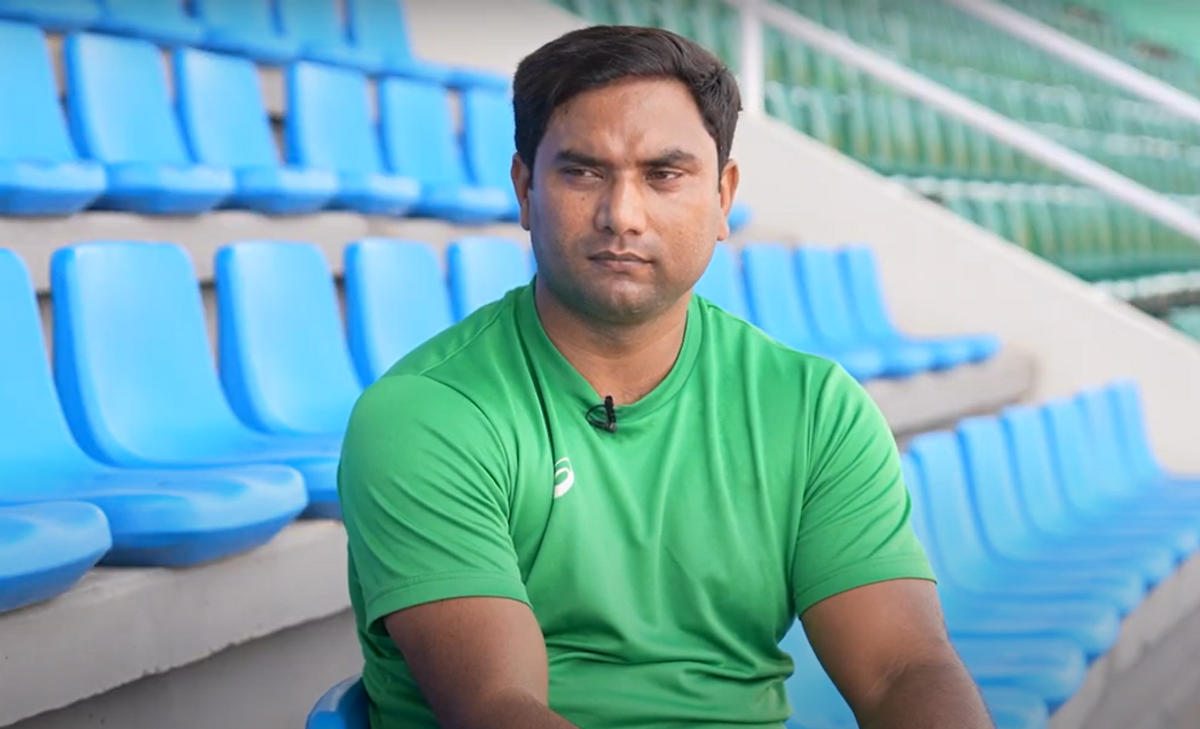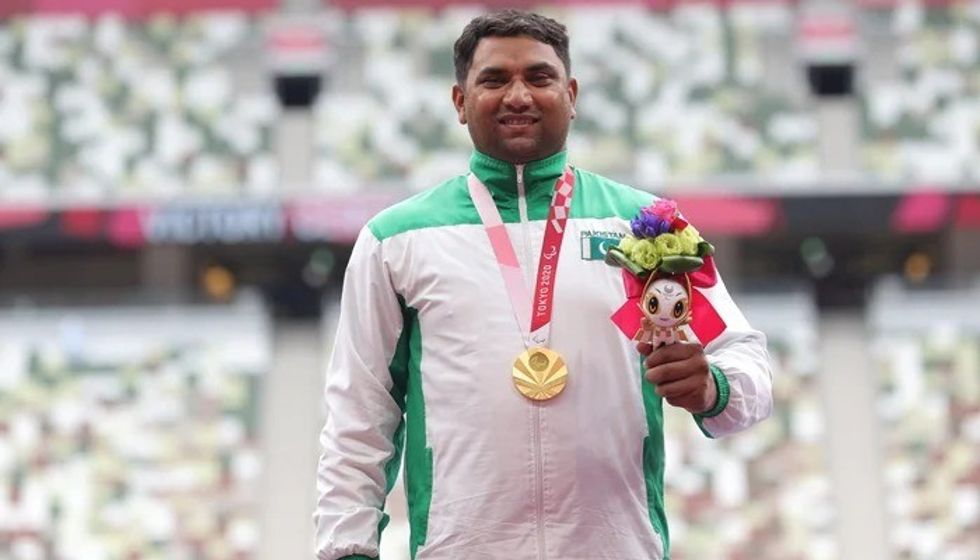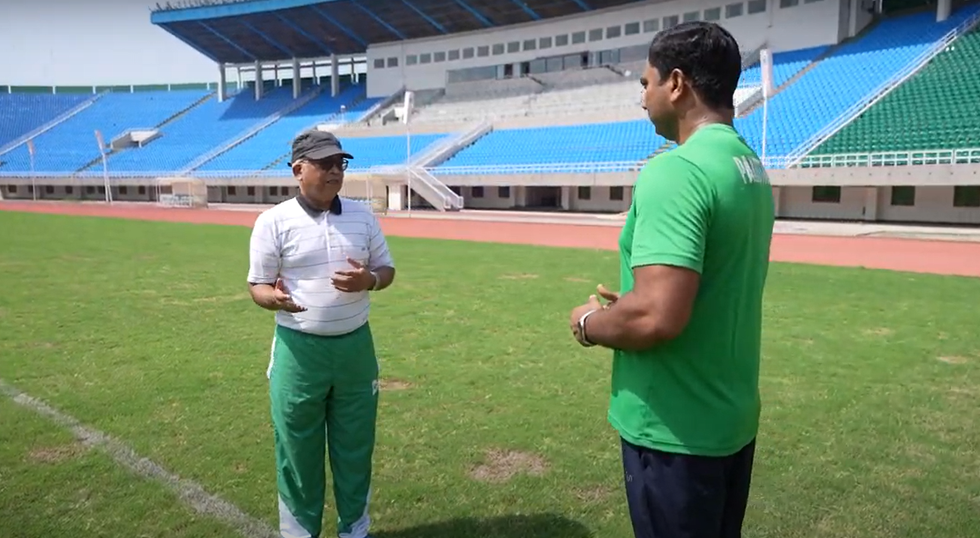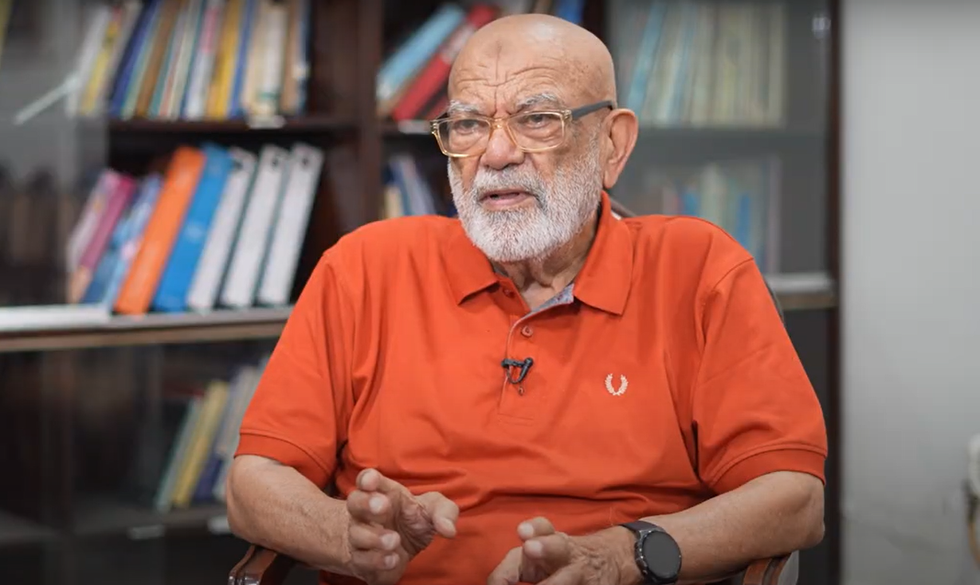
Is Paralympian Haider Ali Pakistan’s biggest athletics star?
SportsThe 39-year-old is Pakistan’s only participating athlete in the ongoing Paris Paralympics
Sep 06, 2024
Sep 06, 2024
Share
Share this link via
Copy Link
https://nukta.com/is-paralympian-haider-ali-pakistans-biggest-athletics-star
Pakistan is the world’s fifth most populated country, yet there is only one athlete who has won medals for it in its 32-year long Paralympic journey. Haider Ali is an all-round para-athlete who created history for his country multiple times in the Paralympic Games; winning a gold in Tokyo (2020), silver in Beijing (2008) and a bronze in Rio (2016).
“Sports is in my blood,” an upbeat Haider said while strolling across the Jinnah Sports Stadium on a sunny August morning. “My grandfather was a wrestler, my father was a kabaddi player, so sports has always been a major part of our family. I was always interested in sports and have been very athletic since childhood.”
Haider, who has hemiparesis on the right side since birth, is the only athlete participating from Pakistan in the ongoing Paralympic Games. He will be defending the gold in men’s discus throw in category F37. The 39-year-old had won country’s first gold in the major event three years ago in Tokyo.
The Glory of Tokyo Gold
“When you win a gold medal, your country's national anthem is played in front of the world,” Haider told Nukta in an exclusive interview. “There is a standing ovation, your country's flag is raised the highest. I can't describe what my feelings were at that moment,” he added.
Haider did not begin his Paralympic journey with discus throw though. In the Beijing and Rio Games, the 6 '1'’ tall athlete had competed in long jump, winning bronze in the latter and silver in the former.

Transition from Long Jump to Discus Throw
However, the Pakistani Paralympian has been a victim of on and off injuries ever since he pulled his hamstring in the 2012 London Paralympics. After numerous treatments and staying unfit for two-three years, Haider decided to shift his focus entirely to discus throw to stay injury-free.
“I started working hard in discus throw thinking that I might be safe from injury,” he said. “There are very few chances of injuries in this sport, but in long jump there are many.”
Beginning of Haider’s athletics journey
Haider, who used to play cricket in his childhood, had learned about athletics as a sport for the first time when he joined the Government Graduate College in Gujranwala but his unintended long jump journey had begun long before. It started when he was just a ten-year-old boy trying to cross a small canal in a remote village called Dera Multaniya.
“I always used to cross that canal,” Haider said, reminiscing his childhood memory. “From the beginning, when I was not aware of anything, I still used to try long jumps. Now when I think of it, I am thankful to God that I crossed that canal. It’s because of that I’m able to achieve these milestones today.”
In 2018 Asian Para Games, Haider represented Pakistan in three different sports and won medals in all three of them, bagging two golds in javelin throw and discus throw, and a bronze in long jump.
Talking exclusively to Nukta, Haider’s father, Sadiq Ali, who has ten children, said that Haider was always special. “Haider’s success is his own only,” he said. “Whatever he (Haider) has achieved in these games, it is all his efforts.”
Despite being his son's biggest support system, the 75-year-old refused to take credit for Haider’s accomplishments. “This success is his (Haider's) own hard work and he achieved it without having any support or resources. We have no stadiums here, no facilities here, for him to run or practice.”
Lack of Facilities and Financial Support
Despite being Pakistan’s only gold medalist in Paralympics, Haider still does not have a recognized sponsor.
“Sponsorship matters,” he said. “I am training here (Islamabad Sports Complex) and I have a requirement of 500 things which I am paying for from my own pocket; shoes, tights, kits, diet. These things should be provided by sponsors so that it does not burden the player's pocket.”
The National Paralympic Committee of Pakistan (NPCP), which has no designated physical space for their administrative operations, is working entirely on a voluntary basis and does not receive enough government support.
Haider’s coach, Akbar Ali Mughal, says that for parasport to grow in Pakistan, athletes need to be provided better facilities and notable sponsorships.
“Just like the Pakistan Sports Complex, we think there should be a Para Sports Complex,” Mughal, who also trains other para athletes, told Nukta. “We can then run training camps over the year for 12 months for the kids. It will give them a boost. We have a lot of talent, but how do we polish it? Unless we have facilities and resources, we can't do it.”

Social prejudice against disabled athletes
Despite widespread awareness campaigns by the International Paralympic Committee (IPC), para athletes are subject to social paradoxes where they are either celebrated or are victim to judgmental stares.
Even after all his achievements, Haider could not escape the patronizing attitude of the people in his village. “There is this thing that when (you succeed), you go to your village, people from there, from your city, appreciate you, encourage you but in Gujranwala it is not like that, ” he said
“There they look at me with strange eyes and I don't understand why because I have played a lot of events and I have won a lot of medals for Pakistan. Everyone even knows that I'm a player of this level but still I don’t get any encouragement from their end.”
President NPCP Tariq Mustafa said that developing countries in South Asia are reluctant to support para sport due to their prejudice regarding people with disabilities.

“All of us; Pakistan, India, Bangladesh, Sri Lanka, we all have one problem,” the 90-year-old told Nukta. “People here don’t recognize para sports. They say why is there a need for disabled people to compete. That is the mentality here. In Pakistan, hardly anyone watches a game between disabled athletes but in other countries, stands are filled because people encourage it. The rest of the world is more sensitive. Our region is not like that.”
Sports work as one of the best ambassadors to promote inclusion and human rights which is why the Paralympic Movement was introduced; to focus on the participants' athletic achievements and not their disability. Haider has made Pakistan proud at the world’s leading sporting event not once but multiple times and deserves to be acknowledged for his achievements.
Back To Top
Company
© 2025 NUKTA. Owned by Pulse Media Networks FZ-LLC All Rights Reserved.



Comments
See what people are discussing